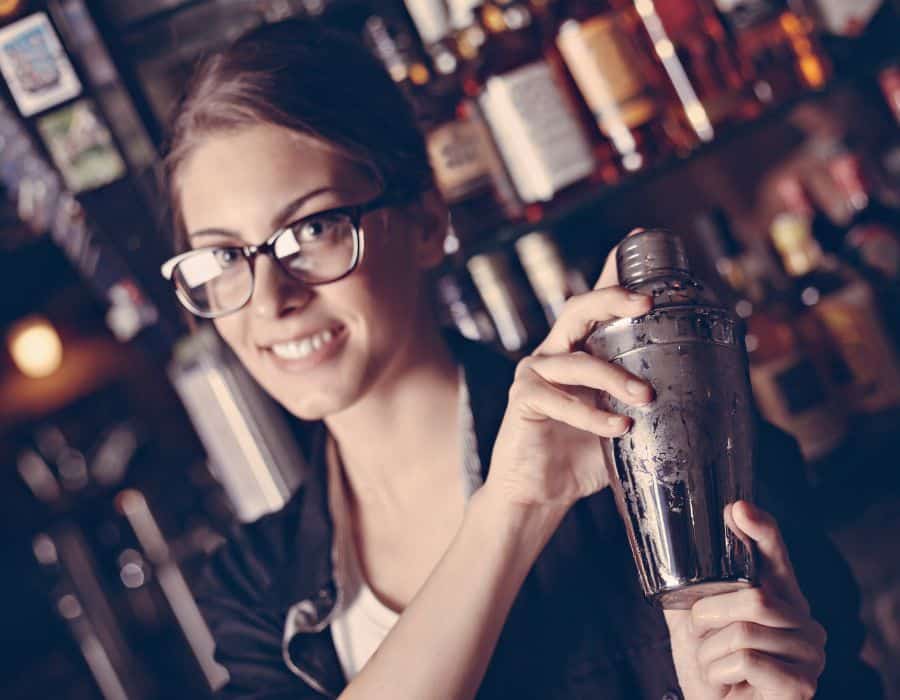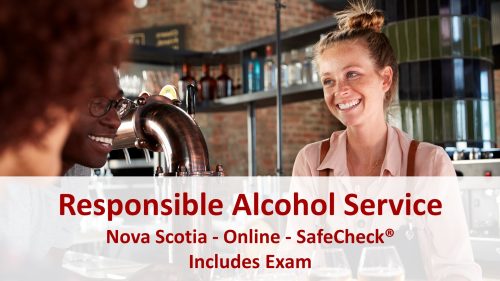How to Pass the servsafe alcohol certification Exam with Confidence and Success
How to Pass the servsafe alcohol certification Exam with Confidence and Success
Blog Article
Master Liable Alcohol Service With Comprehensive Qualification Programs
The proficiency of accountable alcohol solution is not just a regulatory demand; it is a basic component that boosts the credibility and operational stability of establishments within the hospitality sector. What difficulties lie ahead for those that look for to boost their service criteria?

Value of Liable Alcohol Solution
Responsible alcohol service is necessary to promoting public health and wellness and safety and security in establishments that offer liquors. It encompasses a series of practices designed to avoid the overconsumption of alcohol, lower the threat of alcohol-related harm, and ensure a safe setting for patrons and staff alike. By supporting liable solution requirements, establishments can minimize prospective cases of drunkenness, which may bring about crashes, violence, or other negative results.
Additionally, accountable alcohol service improves the total customer experience. Customers are more probable to return to establishments that prioritize their security and health. This commitment promotes a favorable credibility, encouraging word-of-mouth referrals and repeat organization. In addition, facilities that stick to accountable solution techniques usually experience lower insurance premiums and reduced legal obligations.
Additionally, carrying out accountable alcohol service practices lines up with more comprehensive public wellness efforts focused on decreasing substance misuse and advertising neighborhood health and wellness. This positive technique not just shields individual clients but also adds to a much healthier culture. Inevitably, responsible alcohol solution is not simply a legal responsibility; it represents an honest dedication to the health of consumers and the neighborhood at large.
Trick Components of Qualification Programs
Accreditation programs for liable alcohol service normally include numerous crucial components developed to gear up team with the required skills and expertise to serve alcohol securely. These programs frequently include thorough training on local and state alcohol regulations, guaranteeing that participants recognize their lawful obligations and the repercussions of stopping working to conform.
An additional critical component is the identification of indicators of drunkenness - servsafe food handlers card. Staff are educated to identify behavior signs indicating when a patron may be over-served, enabling them to intervene suitably
In addition, efficient communication strategies are emphasized, instructing personnel exactly how to involve with clients in a way that promotes accountable drinking. This includes training in conflict resolution techniques, allowing staff to handle tight spots smoothly and expertly.
Furthermore, programs often incorporate practical scenarios and role-playing workouts, giving individuals with real-life examples to practice their abilities. Recurring education and learning and resources are essential for keeping understanding and skills over time, as regulations and ideal methods evolve. With each other, these elements create a comprehensive structure that empowers team to promote a safer alcohol consumption atmosphere while minimizing responsibility for establishments.
Advantages for Personnel and Establishments
Personnel and establishments alike gain considerable gain from joining responsible alcohol solution certification programs. For staff, these programs improve knowledge and abilities connected to alcohol service, furnishing them to recognize signs of drunkenness and carry out effective treatment strategies. This training not only promotes a sense of confidence among employees yet additionally promotes a society of safety and security and duty in the workplace.
For facilities, purchasing accreditation programs can lead to minimized responsibility and fewer occurrences associated with over-serving. By guaranteeing that staff are well-trained in liable service techniques, establishments can minimize threats connected with alcohol-related incidents, thus shielding their credibility and monetary security. Many jurisdictions provide motivations, such as reduced insurance coverage costs, for licensed establishments.
Additionally, executing licensed practices can improve client fulfillment click over here now and loyalty. Clients are most likely to return to places that prioritize their security and wellness. Inevitably, a dedication to liable this article alcohol service not only cultivates a favorable environment however likewise enhances the general operational effectiveness of facilities, making it a wise financial investment for long-lasting success in the friendliness market.
Typical Obstacles in Alcohol Solution
Making sure reliable alcohol service is not without its difficulties, even in facilities devoted to accountable methods. One significant challenge is the demand for personnel to precisely evaluate patrons' alcohol intake degrees. servsafe food handlers card. This requires a keen understanding of just how different elements, such as food consumption, resistance, and individual distinctions, affect intoxication
Additionally, the stress to make the most of sales can contravene liable service methods. Workers may encounter problems in rejecting service to intoxicated people, particularly in social settings where peer pressure and assumptions are common.
Another obstacle is staying upgraded with local regulations and policies regarding alcohol solution. Conformity is important, yet frequent adjustments in legislation can produce confusion and may bring about unintended offenses.
Training programs Recommended Reading might not constantly cover the nuances of real-world circumstances, leaving staff unfit to take care of complicated scenarios. Inconsistent interaction in between administration and staff members regarding assumptions for liable service can additionally exacerbate these problems.
To browse these obstacles efficiently, facilities must promote an atmosphere of support, stressing the importance of responsible service while supplying the essential tools and training for team to succeed.
Steps to Acquire Qualification
To get Responsible Alcohol Service Accreditation, candidates commonly begin by looking into the particular demands mandated by their regional regulative authorities. These needs might differ dramatically depending on the region, so it is important to familiarize oneself with the relevant legislations and guidelines.

After picking a program, applicants need to finish the requisite training, which usually covers subjects such as identifying intoxication, comprehending legal obligations, and implementing methods for liable service. Individuals need to actively involve with the product, as this knowledge is crucial for reliable alcohol solution.

Following training, candidates typically take an evaluation to examine their understanding of the material. Successful completion of this analysis results in certification.
Verdict
In verdict, mastering accountable alcohol solution with comprehensive qualification programs is important for advertising security and boosting consumer experiences within the hospitality sector. By equipping staff with the necessary knowledge and skills, establishments not only alleviate dangers related to overconsumption and legal obligations but additionally cultivate a culture of obligation. This commitment to responsible solution eventually results in boosted client commitment and functional success, strengthening the relevance of recurring training and adherence to alcohol service criteria.
Report this page